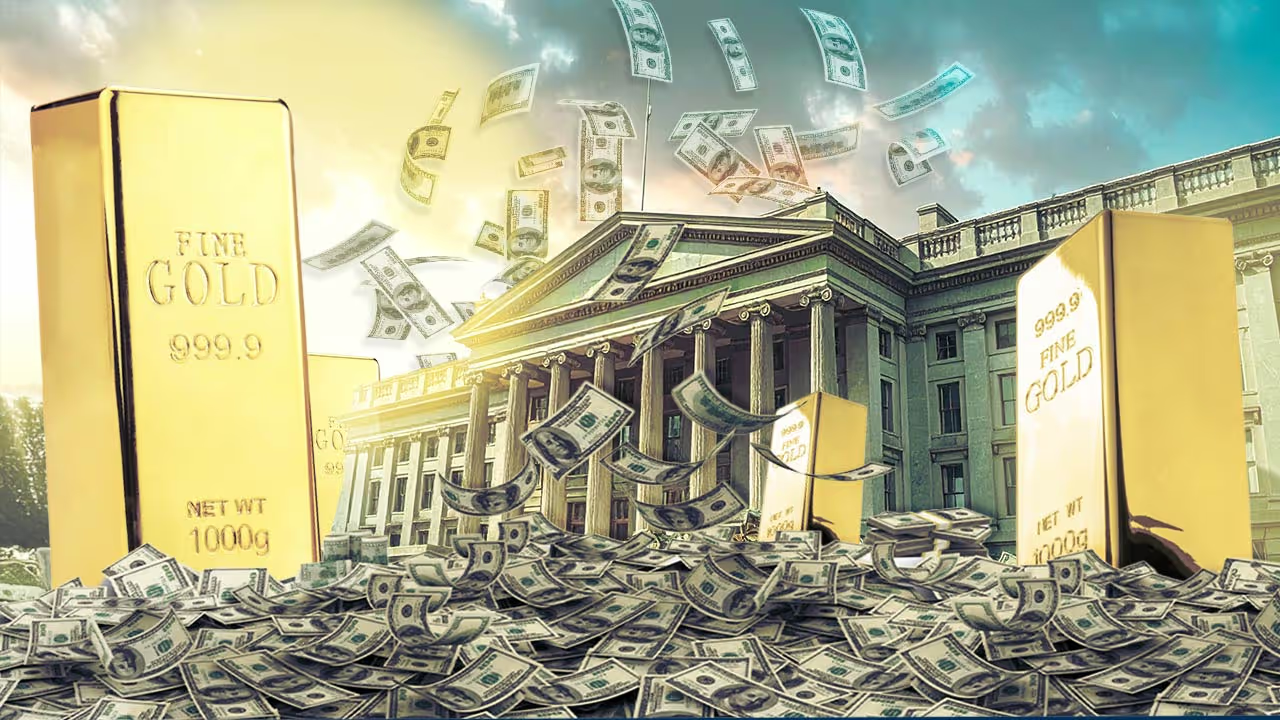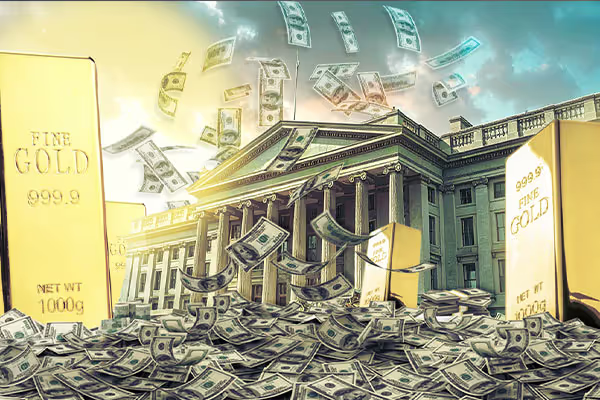In moments of economic uncertainty, gold’s role as a reliable store of value becomes impossible to ignore. That uncertainty now hangs over Washington as the administration’s sweeping tariff program faces legal challenges that could force the U.S. Treasury to issue tens of billions of dollars in refunds. Treasury Secretary Scott Bessent admitted that such repayments would be “terrible for the Treasury,” a striking acknowledgment that fiscal and policy stability are at risk.
The controversy stems from President Donald Trump’s “reciprocal” tariffs, which went into effect earlier this summer under the International Emergency Economic Powers Act (IEEPA). On August 29, the U.S. Court of Appeals for the Federal Circuit ruled that IEEPA does not give presidents authority to impose tariffs of this magnitude. The court delayed its order until October 14, keeping tariffs in place while the administration appeals to the Supreme Court.
If the ruling is upheld, the United States would be required to refund roughly half of the tariffs collected under Trump’s emergency authorities. That is no small matter: U.S. Customs and Border Protection has collected more than $70 billion from these tariffs, while total tariff revenue in 2025 has already exceeded $180 billion. Even partial repayment would be an unprecedented fiscal and logistical challenge, raising questions about how Washington manages its finances — and rattling businesses who must now account for possible refunds, lawsuits, and retroactive adjustments.
Trade Policy on Shaky Ground
The administration insists it has other legal tools, citing Section 232 investigations and provisions of the Trade Act of 1974. But even officials concede those alternatives would “diminish” America’s negotiating position. In the meantime, the uncertainty has real economic consequences. Companies including Nike, Hasbro, and Walmart warn that tariffs raise prices for consumers, and the patchwork way they’ve been implemented makes long-term planning nearly impossible.
The jobs data bears this out. Goods-producing industries — the very sectors tariffs were supposed to protect — have suffered four straight months of job losses since May, according to RSM economist Joe Brusuelas. Manufacturing and construction payrolls are shrinking, even as administration officials insist that factory and building jobs will return.
Tariffs were sold as a way to strengthen American industry. Instead, they have introduced new volatility at a moment when the economy can least afford it.
Fiscal and Consumer Confidence at Risk
The uncertainty is not limited to businesses. Refunds on tens of billions in tariffs would represent a direct hit to government revenue. The Treasury collected $28 billion in duties in July alone, up sharply from $16.8 billion in April. Those inflows have become a significant line item for federal finances — and returning them would weaken the balance sheet. Even President Trump has warned that refunding the money would be impossible without risking “depression.”
For consumers, the story is equally unsettling. Tariffs act as a tax, raising input costs for companies and prices at checkout. Coupled with a slowing job market and sticky inflation — electricity costs are already up 4.6% this year — households face higher living costs and less job security.
This combination — fiscal stress in Washington, legal battles in the courts, and higher costs for families — underscores why gold retains its unique appeal. Unlike the dollar, gold does not depend on government policy decisions or court rulings. Unlike corporate promises, it does not hinge on shifting trade negotiations. It is a tangible, time-tested hedge when confidence in institutions falters.
Gold’s Certainty Amid Tariff Uncertainty
The administration may succeed at the Supreme Court, or it may be forced into refunds that strain government coffers. Either way, the episode highlights the fragility of paper promises. Investors cannot rely on stable policy when the rules of the game shift with each legal ruling and political calculation.
Gold, by contrast, is not subject to reversal or refund. It does not depend on international courts or shifting trade deals. It offers a way to preserve wealth when fiscal, trade, and monetary policies are in flux — precisely the conditions America faces today.
A Proven Hedge in Unsteady Times
At Reagan Gold Group, we help Americans protect their savings from the uncertainty of Washington’s decisions. As tariff battles play out in court and consumers brace for higher costs, a physical gold or silver IRA offers the stability paper markets cannot. Speak with a Reagan Gold Group specialist today to learn how you can diversify with tangible assets that stand the test of time.
About Reagan Gold Group
At Reagan Gold Group, we understand how fiscal uncertainty — from entitlement cuts to bond market volatility — threatens retirement security. That’s why we help Americans move a portion of their savings into physical gold and silver, assets that have historically held value through debt crises, market selloffs, and government cutbacks. With Social Security and Medicare trust funds projected to run dry in the coming decade, now is the time to consider protecting your future with precious metals.














